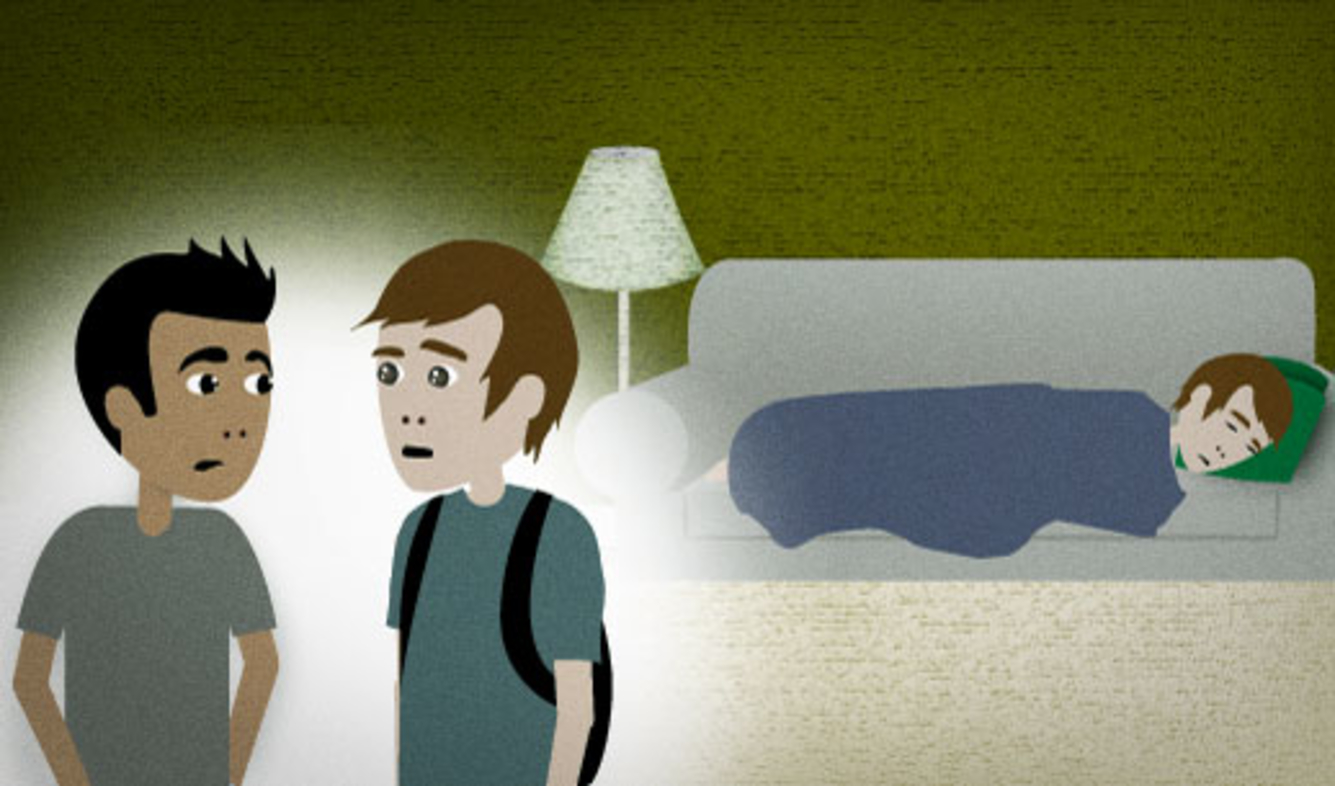“Listen, do you mind if I crash on your couch for a night or two?”
You're visiting another city. You can't afford to stay in a hotel, so you call a friend who lives there. After explaining your situation, you say this to ask if you can stay at your friend's apartment.
Listen, do you mind if I crash on your couch for a night or two?
Want Video and Sound? Follow us on YouTube

Listen
"Listen" is one way to introduce a slightly uncomfortable question or statement. For example:
Listen, I'm sorry about what I said last night.
Listen, can I ask you a huge favor? Can you pick Sammy up from school this afternoon?
"Listen" has a kind of direct and forceful sound. It's not rude in most situations, though.
Do you mind if I (do something)
"Do you mind if I ___?" is a friendly-sounding and light way of asking "Can I ___?"
Use "Do you mind if I ___?" to ask for permission when you think that the answer will probably be "yes". If you think that the person might say "no", use a different kind of question like:
Is there any way I could sleep on your couch for a few nights?
Could I sleep on your couch for a few nights?
Note that English speakers often skip “Do you” when asking a question, but in writing it should be included.
crash (somewhere)
"Crashing" somewhere means sleeping there.
"Crash" is a slang term that sounds casual and adventurous. It suggests someone sleeping anywhere, without caring what the conditions are. You can "crash" on someone's couch or even on their floor.
Men use this expression more often than women.
for a (night/day/week/year) or two
Use this expression when you're not sure exactly how long something lasts:
I've been studying it for a year or two.
We haven't seen her for a week or two.
